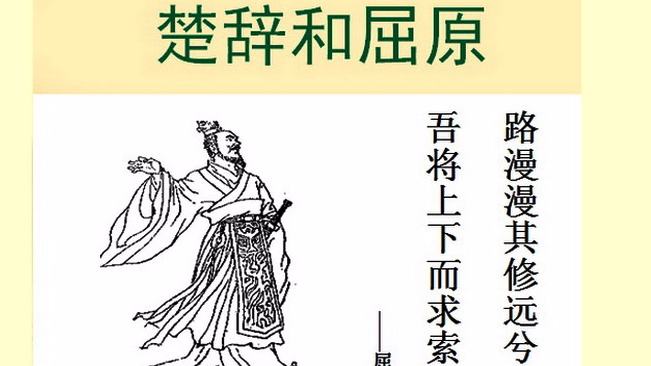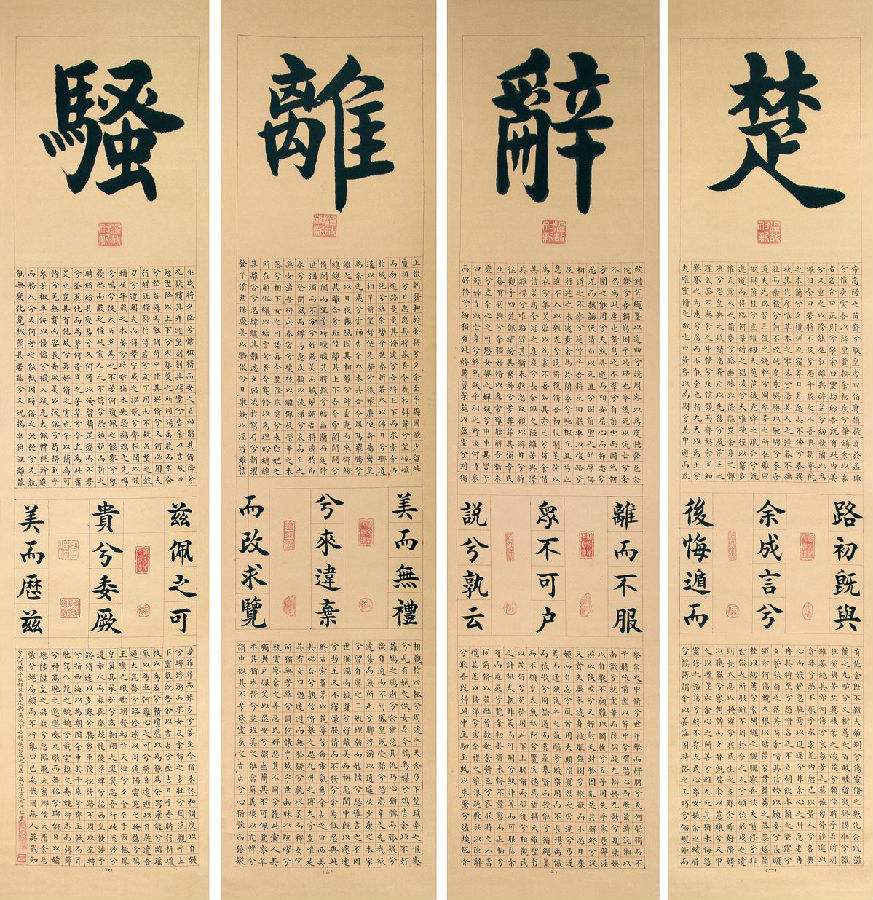Chu Ci and Qu Yuan
3 min readChu Ci,translated as the Songs of the South,Elegies of Chu,or Verse of the Chu State,refers to both a new kind of poetic style different from that of Shi Jing and to the title of an anthology.
As a new poetic style,Chu Ci,as the name indicates,is derived from the folk songs of the southern State of Chu during the Warring States Period.It was first created by the Chinese patriotic poet Qu Yuan(c.340-c.278BC),fusing local folk songs with ancient mythologies.It is characterized by the following points:

.It abandoned the rigid style of the four-character line popularly used in Shi Jing,and adopted verses with varying lengths.Such a freer style laid a good foundation for the later appearance of Fu in the Han Dynasty.
·Chu Ci is permeated with romantic fantasy,due to a custom of firm belief in God and popular ceremonious sacrifice in the Chu culture.This romantic spirit is displayed in theardent sentiments,enthusiastic pursuit of ideals and the creation of imaginative mystical visions.
·Plentiful use of symbols.Typical symbolic images used in Chu Ci are“herbs” and“beauty”,which symbolize virtue and gentleman respectively.This characteristic succeeded the three major literary figures of Fu,Bi,and Xing commonly employed in Shi Jing,which enriches the artistic fascination of Chu Ci.
As an anthology,Chu Ci is the second-oldest collection of Chinese poems in record.It was recompiled from earlier sources by Liu Xiang(c.77-6BC)in the late Western Han Dynasty,covering the Chu Ci works written by Qu Yuan and Song Yu(301-240 BC),as well as other Chu Ci poets.It,together with Shi Jing,constitutes the headstream of the long history of Chinese poetry.
Most Chu Ci poems were writen during the Warring States Period.The most famous poet is Qu Yuan.

Qu Yuan was born in the State of Chu,a large kingdom in the central valley of the Yangtze River.Being a state minister,he was once trusted,but later exiled by the King of Chu,who fell under the influence of other corrupt and jealous ministers who greatly slandered Qu Yuan,because he advocated a policy of alliance with other kingdoms of the period against the hegemonic State of Qin,which threatened to dominate them all.In his exile,he devoted himself to collecting legends and rearranging folk odes while traveling the countryside,producing some of the greatest poems in Chinese literature,which expressed his fervent love for his state and his deepest concerns for its future.But the fall of his country in 278 BC threw him into despair.He drowned himself in the current of Miluo River and died.As a great patriotic poet,he iscommemorated at the Dragon Boat Festival.Qu’s political idealism and unbendable patriotism have served as a model for Chinese intellectuals to this day.
Qu Yuan’s Chu Ci poems are mainly found in the anthology Chu Ci,and the following are his most representative ones.
“Sorrow After Departure” is the most famous long poem by Qu Yuan,and is the literary representative of his high moral conduct and patriotism.
This melancholy lyric mostly expressed his great patriotic spirit and loyalty to the King of Chu.As far as the development of literary style is concerned,Qu Yuan abandoned the classic four-character verses commonlyused in Shi Jing and created new verses with varying lengths,giving the poem more rhythm and freedom in expression.It is mostly for this poem that Qu Yuan is regarded as one of the most prominent figures of Picture 7-4 Qu Yuan romanticism in Chinese literature.As a great romantic poem,it exerted enormous influence on the later romantic poet Li Bai in the Tang Dynasty.
“The Nine Songs”,including eleven hymns to the local deities of the Kingdom of Chu,mainly describes the mythical feeling of”love between man and God.”“The Nine Elegies” is a set of short lyrics,conveying Qu’s deep yearning for his motherland and the King of Chu and also lament for the fal of Chu.”Asking Heaven”,composed mostly of questions,delivers his world outlook and philosophy.“Requiem” was written to summon the soul of King Huai of Chu.It is characterized by excellent description of grand houses,luxurious costumes,exquisite cuisine,beautiful singers and dancers,and graceful songs and dances.








